Sometimes these questions arise most urgently only because you are the one instigating the move. If some employer or relative or force of nature compelled you to move, then you’d just do it and get it done. Sometimes it helps to adapt as if one has no choice other than to adapt. It’s a way of snipping ties and burning bridges quickly, without dragging that big bag of Looking Back behind you. That said, I remember the time it was finally real that I was moving out of Michigan, and I felt like I was seeing my hometown for the first time. It felt like preemptive nostalgia. I think this is also the nature of sensitive creative types. We just feel everything too damn much. So keep writing about it so you can keep perspective. Obstacles are smaller when you dream bigger. —my always wise, always thoughtful friend, David, in response to me writing about my fear of leaving.
I held off signing my lease for days because committing myself to a new home for the next fifteen months became all too real. I got surgical with the contract, posed endless questions, and this morning I woke to the last of my seemingly endless inquiries met with cheerful, patient responses, and I signed a 42-page electronic document that would put me on a plane to Los Angeles in less than a month.
This is the part in the story when I become terrified. When I feel like the call is coming from inside the house (to quote my friend Amber). When it seems as if I’m the star of my own horror movie. This is the moment in the story where fear registers high, and even though I’m 8,615 miles from Los Angeles and 10,125 miles from New York, I want to crawl under my covers and scream into pillows.
However, I refrain, fearful that my fancy Balinese hotel would charge extra for the outcry.
The year before I left for college, I took a cross-country trip to meet a pen-pal, Leilani. We exchanged letters where we wrote at length about our affection for hip hop, and how we felt as if we were tourists in our own skin. She was Hawaiian, forever perceived as a chola; I attended a predominately all-white high school where I was an outcast, considered an other because of the disconnect between my unruly, kinky hair and my pale skin. I was white but not really, and in a high school where my classmates thought black people were ball players, rappers or criminals, I was often met with confusion, fear and disgust. Leilani and I issued countdowns for our respective escapes (she was 19 and finally had enough money saved to move out, while I was college-bound) and we decided to spend a week together celebrating in Los Angeles.
Boarding a plane at 17–at a time when I considered Long Island another continent in comparison to Brooklyn, where I’d grown up–was inconceivable. I didn’t even know how to buy a plane ticket and I refused to hand over my life to a giant flying machine suspended in midair. Flying was out of the question–who had all this money for a ticket that was the equivalent of riding the Cyclone, but elevated thousands of feet from the ground?–so I took a series of trains into the city to purchase a Greyhound ticket.
The trip took three days. Until then I’d never left the city perimeter, so I was in awe of the accents I’d only seen played out on television. Mouths made the strangest sounds. People said pop instead of soda, and regarded New York as a place where people got maimed and murdered. A man boarded the bus in Wisconsin smelling of sweat and coconut oil, and regaled me with his tales of being a male escort. I changed seats. In Montana, a woman boarded and cried for two hours, occasionally banging her head softly against the window–but not too loud as I suspected she’d get kicked off the bus for bringing crazy. I clutched my bookbag to my chest. The rest stops stenched of bleach blended with urine and air conditioning, and I’d enter diners, bleary-eyed and exhausted, and feast on cinnamon buns or charred, buttered toast–whatever my meager pocket money afforded me. By the time I arrived in Los Angeles, all I wanted was a shower in silence.
Back then the only word I could use to describe my initial reaction to Los Angeles was sprawling. The roads were winding and seemingly endless. Numbered streets didn’t exist–there was no rhyme or reason for intersections and thoroughfares. Where were all the people? Why were the streets wiped clean of them? Had my post-apocalyptic fears come to pass? People don’t walk, they drive, Leilani offered in response. In Los Angeles, we were forever in a car, always on a freeway. In New York we wouldn’t think twice about walking miles to a movie theater or a pool, however, in California you turned on the engine to move a few feet.
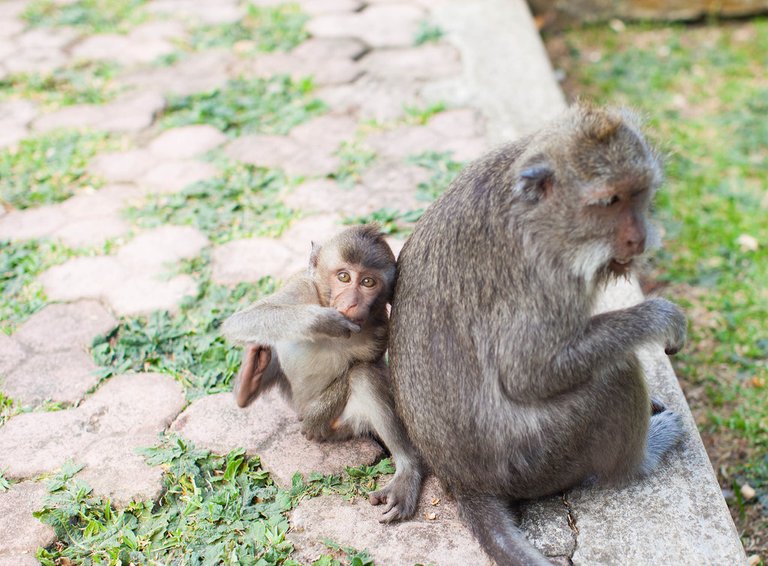
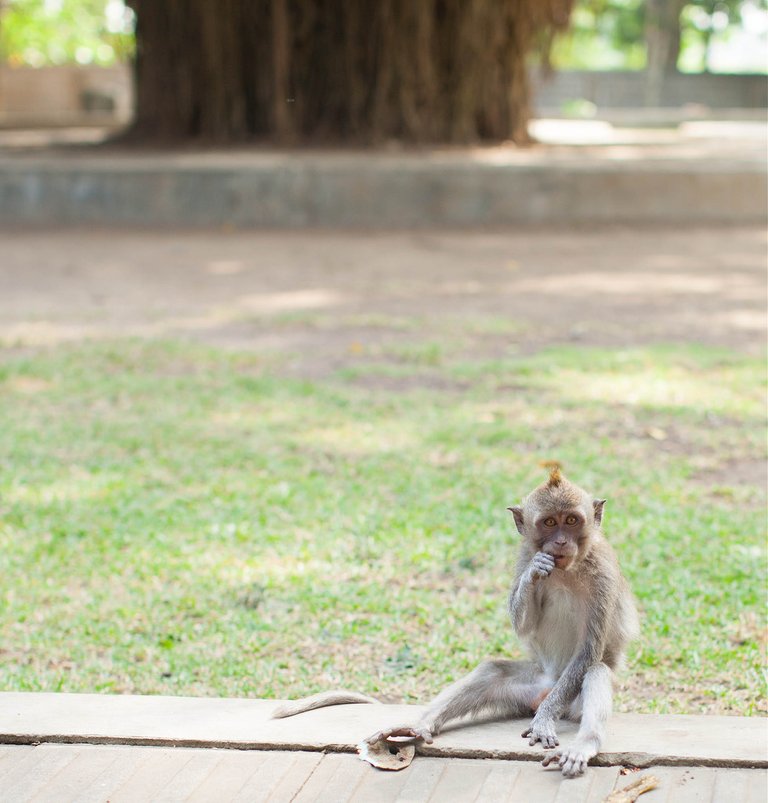
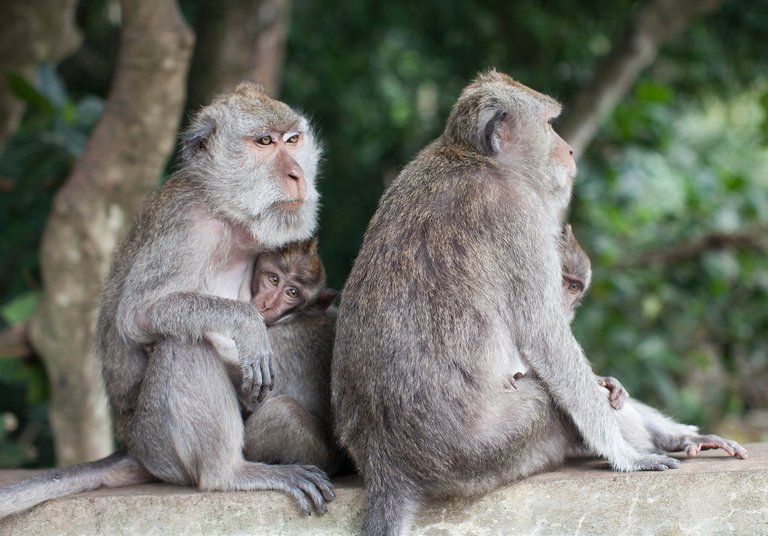
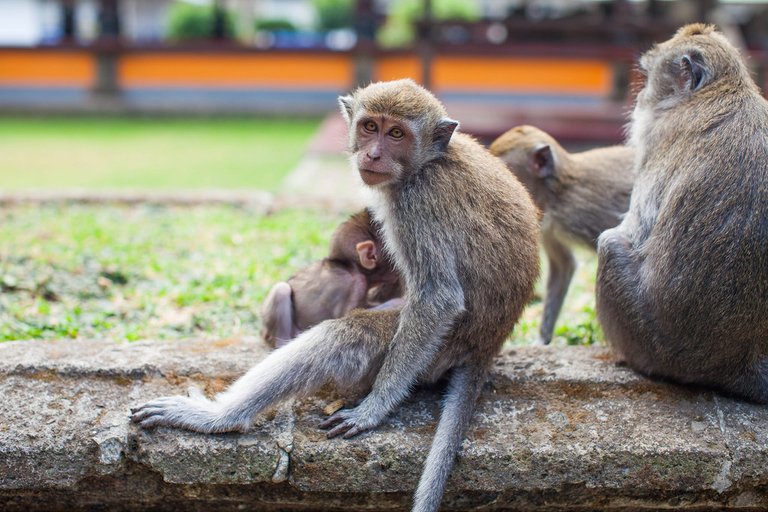
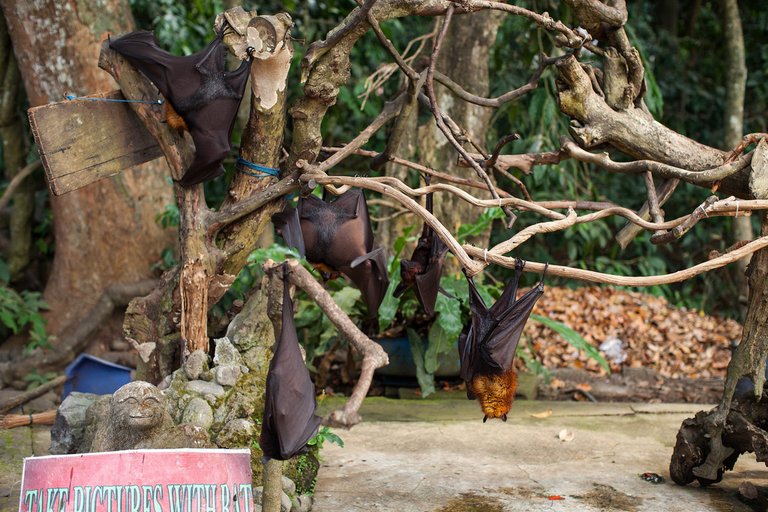
Yesterday I’m reminded of this when my guide takes me to the temple at Batukaru. Built on the slope of Mount Batukaru to ward off evil spirits, the climb up is windy, arduous, and my guide tells me that during sacred holidays cars are verboten. Everyone must make the journey up by foot! His voice registers a quiet kind of horror. I regard our differing perspectives: how he shivers in the 70 degree chill and considers a trek uphill as a form of torture while I’m willing to take the mountain air and hill like sacrament. Several times during our walk along the lush terraces of The Jatiluwih Rice Fields, my attentive guide inquires whether I’d like to pause, if it’s all too much. I want to say it’s not too much, it’s never enough, but he wouldn’t understand because what I can and cannot endure at this moment has little to do with rice paddies. Instead I tell him that I’m fine, everything’s okay. Let’s keep moving.
This is my life, I think. Forever fine. Forever moving.

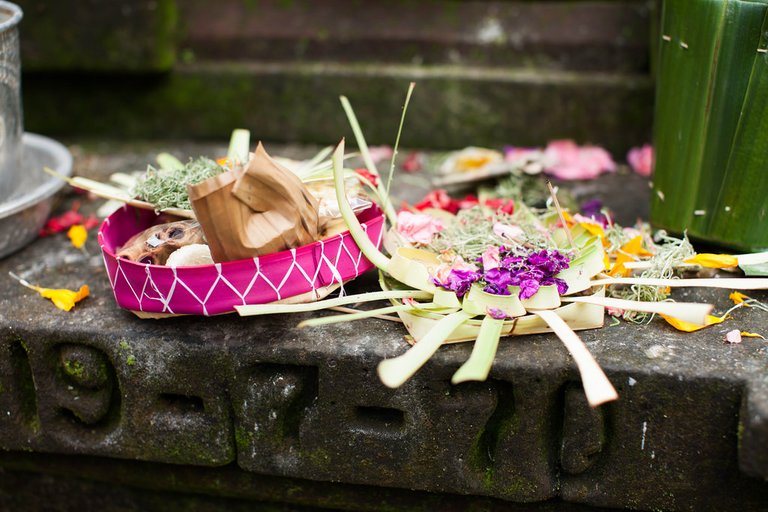
I watch monkeys and how swiftly they move. How the mother carries her young as she flees into the trees, deep into the green. I watch fathers sift through hair and skin to ferret out burrowed ticks and bugs. Everyone is in the business of care and protection. And then I see a lone monkey (first image, above). He’s small, agile and resistant of the slightest gesture of affection. When other monkeys approach (and you can tell it’s with trepidation), this one scurries away, climbs up a tree. Watching from above. When he’s assured that danger in the form of attention no longer exists, he climbs down and watches the other monkeys playing, as if a self-made partition exists between them. My local guide dismisses this monkey, calls him antisocial, and I disagree.
I think he’s scared. I think he has a great deal to protect. Why else would he build a fortress around his heart?
My friend David serves as my occasional moral compass. Years ago, he called me out for expressing anger over the ingratitude of others I’ve mentored. With calm and clarity he told me that my intentions weren’t whole and honest because I’d delivered kindness with the expectation of something in return. Instead, we should give kindness simply to give it without any desire for reciprocation. Karma will care for us in the end, he said, and I fervently believe this. While we haven’t seen one another in years, whenever he writes me I pause, read and reflect. I treat his words with care because they come from a place of complete selflessness. Somehow he always manages to inspire clarity and calm whenever I’m flailing. I deeply admire him this–his propensity for reflection and honesty. A few days ago I posted a flippant comment (half-joking, half-serious because this is how I manage discomfort–I swathe it in forced gaiety) about being terrified of leaving. I had all the questions. I’m signing a lease for an expensive apartment–will I be able to pay for it for 15 months? I’m thousands of miles away from my closest friends–will I sustain those relationships while cultivating new ones, even as an introvert? Will I get over my fear of driving and get in a car? Will I become one of those people who complain about walking a mile? (oh dear god, I hope not) Will I finally be in a place where I can fall deliriously in love? Will my cat survive the plane ride? (yes, of course, of course, but I’m panicking nonetheless. I imagine Cesar Millan wouldn’t be pleased) How will I pay for the insane $3K+ it costs to move my stuff from one home to another (do you believe it’s this expensive!)? And on it goes.
Hours later, I scan Facebook and pause when I see David’s comment:
Sometimes these questions arise most urgently only because you are the one instigating the move. If some employer or relative or force of nature compelled you to move, then you’d just do it and get it done. Sometimes it helps to adapt as if one has no choice other than to adapt. It’s a way of snipping ties and burning bridges quickly, without dragging that big bag of Looking Back behind you.
Somehow this puts me to thinking of my relationship to alcohol. There was a time when my significant relationship was with a bottle of red wine because it was my one constant, the one thing that would never leave. I needed this permanence and the way alcohol blurred the edges of things. I spent most of my adult life numb until I woke up one day, fed up, aching to actually FEEL something. Quitting the drink felt like bandaids ripping off. The pain was that real and acute but I dealt with it. With the passing of each day, I rationed, it had to get easier. The once-throbbing pain would dull and I would only suffer the occasional pang. As it turns out, I was right, and looking back on my life I’ve so much regret that I spent it anaesthetized. I’d much rather have endured the hurt–all of it–because it’s temporary and the light always rises up to meet you once you’ve crossed over to the other side of sorrow.
So I imagine moving from my home, all that is familiar, is much like this. A burn, a sting that will invariably heal.
Right now I have $0 in my bank account because I’ve paid off much of my debt and I’ve checks to deposit (thank god). Right now I’ve booked a one-way ticket, have given notice to my current landlord, and will spend tomorrow comparing rates from various moving companies while perched in front of The Indian Ocean. I will push through this and feel the bandaids ripping off, one by one. I will feel it. I will write about it. I will get through it. I have to believe there’s something just right beyond my reach, on the other side.
available : lovelifeeat
mindblowing picture😊
Without deep reflection one knows from daily life that one exists for other people.
- Albert Einstein